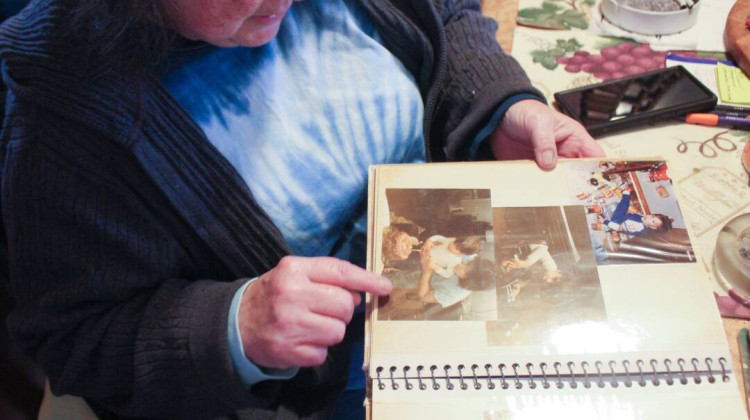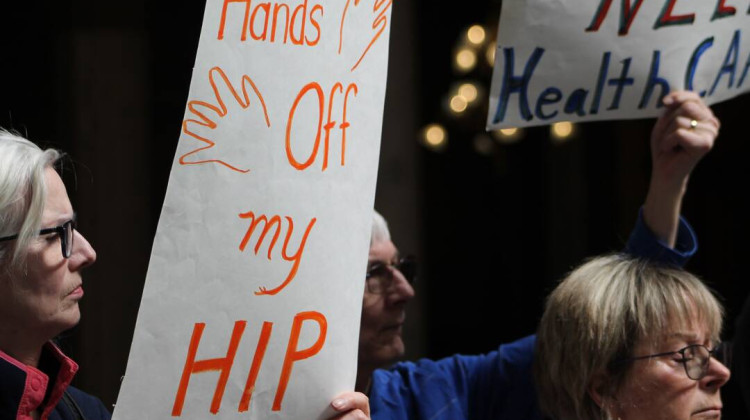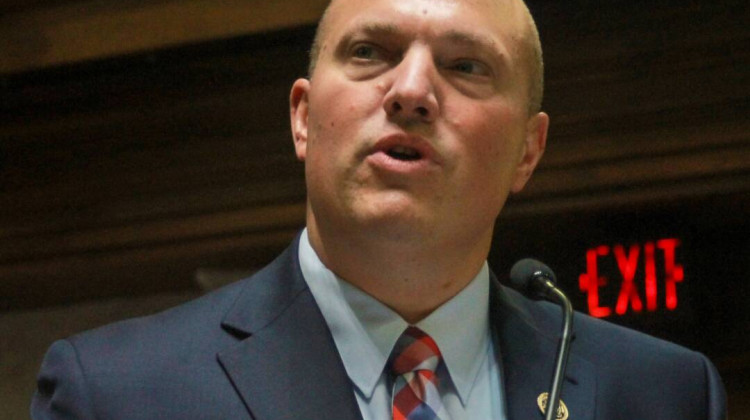
Indiana nonprofit Overdose Lifeline is purchasing and installing the machines. Executive director Justin Phillips demonstrates how to use the one installed in the St. Joseph County Jail.
(Jakob Lazzaro / WVPE)In an effort to reduce opioid overdose deaths, Indiana’s first Narcan vending machine has been installed at the St. Joseph County Jail.
Naloxone — commonly known as Narcan — is a medication that can quickly stop and reverse an opioid overdose by blocking the brain’s opioid receptors.
The machine at the St. Joseph County Jail holds up to 300 doses and is being installed in the vestibule before the jail’s secured area — so anyone can walk in at any time and grab a kit, no questions asked.
According to recently released CDC data, Indiana had a 32 percent increase in fatal overdoses between April 2020 and April 2021, and the U.S. topped 100,000 overdose deaths for the first time.
Experts attribute the surge in overdoses to the COVID-19 pandemic and the proliferation of fentanyl, a powerful synthetic opioid.
Doug Huntsinger is Indiana’s executive director for drug prevention, treatment and enforcement.
“We know that Naloxone can save lives,” Huntsinger said. “So, we must do everything that we can to get the medication into the hands of those who need it the most.”
Because of that, St. Joseph County Sheriff Bill Redman said he’s excited to house the machine.
 “I didn’t bat an eye,” Redman said. “I thought immediately this was a win-win for us, in our community, to make our residents safe.”
“I didn’t bat an eye,” Redman said. “I thought immediately this was a win-win for us, in our community, to make our residents safe.”
Indiana nonprofit Overdose Lifeline is purchasing and installing the machines with a $72,600 federal grant, so there’s no cost for entities that choose to house one.
Executive director Justin Phillips said since the machine is located at the county jail, it’s easily accessible to people who were recently incarcerated.
“This is a huge deal,” Phillips said. “We know that this population is 130 times more likely to experience an overdose death within two weeks of their release.”
St. Joseph County may house the first vending machine, but Huntsinger said 18 more are coming around the state.
This week, the Wayne and DuBois County Jails are also getting vending machines. And three more will soon be at hospital systems and health departments in Clark, Scott and Marion Counties.
The vending machines will service high-traffic areas, Huntsinger said, so the state is also installing smaller Naloxone boxes that hold 20 doses each.
They are about the size of an AED, and some have already been placed. Eventually, there will be 430.
John Horsley, the vice president of adult services at Oaklawn, said Narcan is a springboard for getting someone into treatment.
“We cannot treat death, but we can treat substance abuse,” Horsley said.
“I can’t tell you the number of people we’ve seen who’ve been saved by this medication and later decide to get into a process of recovery and do well.”
He said everyone should have Narcan as part of their standard emergency supplies, like a first aid kit or fire extinguisher.
“I would encourage you to not have just one dose, but two doses,” Horsley said. “Fentanyl overcomes this Narcan very quickly and sometimes you’ll need two doses to wait on EMS to get there.”
You can also request a naloxone kit for free on Overdose Lifeline’s website.
Contact Jakob at jlazzaro@wvpe.org or follow him on Twitter at @JakobLazzaro.
If you appreciate this kind of journalism on your local NPR station, please support it by donating here.
 DONATE
DONATE






 Support WFYI. We can't do it without you.
Support WFYI. We can't do it without you.